Analysis of medicines used to treat ulcerative colitis
Page last updated: 27 October 2017
Drug utilisation sub-committee (DUSC)
June 2017
Abstract
Purpose
Analysis of medicines for the treatment of ulcerative colitis, including predicted versus actual use of biologics for acute severe and moderate to severe disease.
Listing on the Pharmaceutical Benefits Scheme (PBS)
Medicines available on the PBS for the treatment of ulcerative colitis include:
- Corticosteroids (prednisolone, hydrocortisone and budesonide in various oral and rectal formulations)
- 5-aminosalicylates (sulfasalazine, mesalazine, balsalazide and olsalazine in a range of oral formulations and rectal formulations)
- Immunomodulators: azathioprine, mercaptopurine, cyclosporin, methotrexate
- Tumour necrosis factor (TNF)–alpha inhibitors (adalimumab, infliximab) and the α4β7 integrin inhibitor (vedolizumab)
Restrictions apply to some of these medicines. Search the PBS website for details.
Data Source / methodology
The DHS prescription database was used to identify a cohort of 54,785 patients who were treated for ulcerative colitis between 2012 and 2016.
Key Findings
- Mesalazine has the highest use of the rectal preparations, the highest use of the oral 5-aminosalicylates, and the highest use overall.
- Budesonide foam enema has not displaced as much of the prednisolone market as expected.
- Use of biologic medicines is low in the context of the entire market of ulcerative colitis, however use is increasing.




